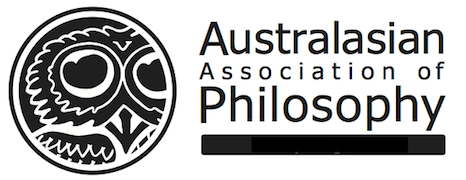2 0 2 4 A A P C O N F E R E N C E O N L I N E
Conference Home • Keynotes • Registration & Abstract Submission • Abstracts
Sessions • Program • All Speakers • AAP Home
KEYNOTES

Cassandra Teodosio
University of the Philippines Los Banos, Philippines
Philosophy and the Pursuit of Happiness Today: Philosophical angst and Kantian Hope
This paper explores how philosophy and philosophising manifest—in imagining a possible future, a paradigm shift in decision making—in the everyday pursuit of happiness in our post-pandemic contemporary world. Given the possibility of reprieve philosophising can provide us through our practices of reflection and reflexivity, I include the condition of philosophical angst particularly lived and embodied by philosophers in the peripheries. Philosophical angst in this paper includes the experience of alienation, precarity of work, marginalisation among others aside from the angst we get when we encounter and struggle with our philosophical texts. Because of these, I want to investigate if there is space for Kantian hope in making sense of philosophical angst and in our pursuit of happiness today.

Yale-NUS College, Singapore
Confucian Propriety without Inequality: A Daoist (and Feminist) Re-construction
This work is a thought experiment in re-interpreting the virtue of li or ritual/propriety for the contemporary, multi-cultural, world. Using Zhuangzi, the Lunyu, and Zhongyong as my primary points of departure, I re-interpret the Confucian ideas of hierarchy in terms of the Daoist conception of harmony.
Many scholars today argue that Confucianism is a process holism, process cosmology, an anthropocosmic philosophy, has a relational ontology, and so on. Yet at the same time, we find that Confucian values can and do lead to rigid and harmful traditions that have historically oppressed marginalised groups like women. As such, I re-imagine what li might look like if we take relational ontology seriously, an ontology which I argue is elaborately laid out in the Zhuangzi. Drawing from Zhuangzi thus, I then then argue that Confucian harmony and order do not necessarily arise out of hierarchy as Xunziargues, and that harmony, the most primary goal li in particular, and of the Confucian project in general, can be best attained through ritual and propriety that is influenced by Daoist philosophy.
VinUniversity, Vietnam
Is ChatGPT a Narcissist? AI Personality, Turing Locks, and the New Control Problem
Existing worries about the danger AI poses to humanity focus on the consequences of superintelligence whereby AI beats humanity in a game of survival of the fittest. This I call the “old control problem”. However, the drive to imbue AIs with personality by leading software developers poses a “new control problem” that calls for a different solution. In this talk, I draw attention to recent work done to create personality traits in AIs and show how some of these could be considered malevolent. I draw inspiration from William Gibson’s speculation on this issue in his novel Neuromancer and evaluate whether his theoretical solution of “Turing Locks” could be a viable one for humanity to follow in the real world.
- Home
- Events
- Conference 2024 Online
- Keynotes 2024 Online
© Australasian Association of Philosophy ACN 152 892 272




